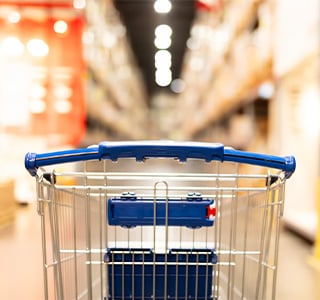Insight
How to get your ducks in a row for an efficient year-end reporting process
It is year end and you’re probably feeling very organised, right? You’re already talking to your accountant and auditor regularly about the information you need to supply. You’re thinking about changes within your business that need to be incorporated into your reporting. You’ve agreed a timeline to make sure everyone is on the same page. Fantastic. Your business will be audited on time, your bank loan covenants will be met, stakeholders will be reassured, and your company’s reputation will be upheld. Wait, does that not sound familiar? Unfortunately, not all businesses are as organised as we might like them to be. In practice, companies collect up all the information they think is necessary and pass it onto their accountant hoping it will be sufficient. Partly this is because businesses are so caught up with other work that understandably seems more urgent. It can also be tricky to know what your accountant and auditor need to know – and the list can be long. What does your accountant need to know? Some of the major considerations are as follows. • If there were any findings, recommendations or inefficiencies identified by your accountant or auditor last year, take steps to address them and implement any necessary improvements. • Ensure you’re applying the right reporting standards and tier and you’re meeting deadlines like bank covenants and parent reporting requirements. • Set a timeline to ensure everyone is on the same page, and so that you or your team is available to address any questions or concerns promptly. • Estimates and judgements require careful consideration and review by management. These can include impaired inventory, changes in asset valuations or a change in asset useful life, and impairments. • Changes like new leases, amended lease terms, or adjustments affecting revenue recognition timing should be assessed. Evaluate how fluctuations in interest rates may impact your reporting accruals and provisions should also be considered. • Changes in rules could impact your accounting, such as depreciation on commercial property, or new accounting standards either internationally or locally. • There may be events you need to disclose and consider, like major transactions, or contingent assets and liabilities. • If you’ve changed your goods and services terms or offerings, this can affect how you account for income recognition. If this isn’t clearly understood, a large amount of analysis and rework may need to be completed in a short timeframe. • Have you closed an acquisition deal and immediately moved to the celebrations without thinking about how to account for it, or what the disclosure requirements and tax implications are? If so, you could be facing delays and unforeseen costs. These are just some of the possible considerations – the list goes on. Ideally you should maintain an ongoing dialogue with your accountants throughout the year to avoid unexpected issues at year-end. Incorrect or incomplete information can lead to inaccurate reporting. Getting it wrong can create big risks and serious costs Compliance failures can really snowball. Missing your internal timeframes including those of your Board, bank covenant reporting, allocated timeframes for audit, regulatory filings can all have major consequences. Worse still, if issues aren’t picked up until later, a restatement of your prior comparatives may be required. This would invariably result in increased costs, time delays, reputational damage, and potential increased scrutiny. These restatements are prominently noted in your financial statements for your readers to see. Failing to ensure robust planning for your financial statements process can also severely erode shareholder trust in the business, its governance, and its management teams. But all this can be avoided when a business is organised and clear channels of communication are maintained. As they say, a fail to plan, plan to fail.


































